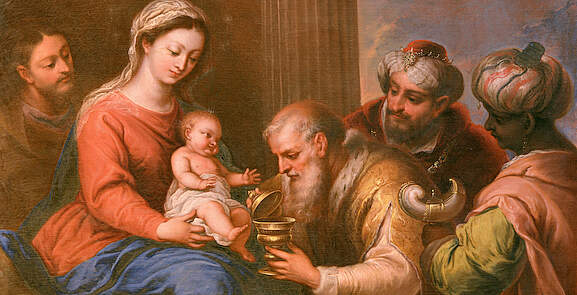
"Entering the house, they saw the Child with Mary his mother, and, falling on their knees, prostrated themselves before him; then, opening their treasures, they offered him gold, incense and myrrh" (Mt 2:11).
Joseph witnessed the attitude of the Kings towards the Child. Wasn’t it an amazing confirmation of what the angel had announced to him, and of what the shepherds had told him?
The Wise Men, these kings from the East, respected and sage in the eyes of men, didn’t hesitate to make this long journey to come and bow down before the "Child," this infant who is different from other children and besides Mary, Joseph knows this better than anyone else.
The religious authorities of Jerusalem do not come to worship him – even though they have received the news – but the Kings of the East do! In the same way that the shepherds have to go see the descendants of David, so the Wise Men go see the religious authorities of Jerusalem.
Joseph, a just and upright man, recognized the work of divine wisdom – the poor and humble have to appear before those who are satisfied with themselves. Both the shepherds and the Wise Men represent those poor and humble ones, the "hungry."
Isn’t this what Mary had prophesied in her Magnificat? "He has scattered the proud in the conceit of their heart. He has brought down the mighty from their thrones and has exalted the lowly. He has filled the hungry with good things, and the rich He has sent away empty."
Adapted from: The Mystery of Joseph (Editions Saint-Paul, Paris, 1997) by Fr. Marie-Dominique Philippe, founder of the Community of Saint John